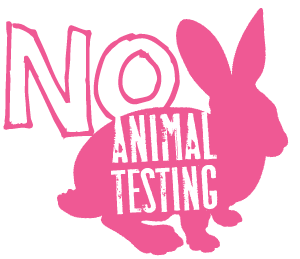Editor's Note: This article was written by Kaylee Crowell and Lena Stone
Despite the fact that no law mandates the animal testing of cosmetic products in the United States, many popular brands still employ the technique despite readily available and humane alternatives.
Even if the testing does not occur within U.S. borders, countries like China will conduct mandatory animal testing on all cosmetics imported into their country. This outdated and cruel method is still being condoned by many industry giants, a compete list of which can be found on crueltyfreekitty.com and peta.org. In response to this tragic situation, author Kaylee Crowell addresses the UMass community in a letter focusing on one specific company that we have doubtlessly all used--Clinique.
Dear UMass Students,
For my College Writing 112 class I was assigned to write a letter. I chose to write a letter to a company, Clinique, that still tests their cosmetic products on animals. For those of you who love cosmetics and also love animals, I need to bring your attention to something really important. Upon doing research for my class and letter I found that many cosmetic companies argue that they are against animal testing, but use a technicality in their animal-testing statements to make it appear that they are cruelty-free. We cannot let them continue to get away with this, and I urge you to stop supporting these companies by buying their products.
Despite some companies claiming to be “cruelty-free” and that the ingredients and production of their products do not harm any animals, this is not the case. It seems as though companies such as Clinique have found a loophole in the phrase “cruelty-free.” They write in their animal testing statements that they do not test on animals, “except where required by law.” Currently, China requires all foreign company’s products including “makeup, perfume, skincare, nail products, hair products, hair dye, deodorant, sunscreen, and whitening products” to be tested on animals in order to be sold in their country (Animal Testing for Cosmetics in China). So when a company states “except where required by law,” they are still testing on animals, and therefore cannot be considered cruelty free. The PETA (People for Ethical Treatment of Animals) lists companies that are completely cruelty-free on their website, but unfortunately, Benefit, Chanel, Clinique, Covergirl, Dior, Estee Lauder, Lancome, L’Oreal, MAC, Olay, and Neutrogena can be found on the list that still test in China. What makes companies that test on animals in China even more despicable is that alternatives to animal testing are readily available, and can often be quicker and cheaper as well. This leads me to ask, what are their excuses?
The Human Society states that “there are nearly 50 non-animal tests that have been validated for use, with many more in development. These modern alternatives can offer results that are not only more relevant to people, but more efficient and cost-effective.” Yet, cosmetic companies continue to torture animals instead of seeking alternatives. Cruelty Free International’s article “Alternatives to Animal Testing” seems to believe it is because “it is easier and more comfortable to simply do what has always been done.” What is even more unbelievable is that animal tests are not even definitive predictors of products in the first place: “Crude skin allergy tests in guinea pigs only predict human reactions 72% of the time...the notorious Draize skin irritation test in rabbits can only predict human skin reactions 60% of the time” (Alternatives to Animal Testing). There are better methodologies of testing, that are even more effective than animal testing. Furthermore, other cosmetic companies have enacted the changes in their testing with ease.
Other similar cosmetic companies have pulled their products out of the Chinese market to become officially cruelty-free. Companies such as Dermalogica, E.L.F cosmetics, Kat Von D cosmetics, Marc Jacobs beauty, Milani cosmetics, NYX cosmetics, Tarte cosmetics, and Urban Decay cosmetics. These are the companies we should support. The companies that take into consideration the impact animal testing can have on the same species we own for pets: guinea pigs and bunnies are common household pets, but also mice and rats because their lives matter as well even if they are not traditionally domestic pets. Even if animals are not your first priority, still consider what the ingredients in the products you are using could be doing to you, if they are harming animals. This widespread issue would not be an issue if companies stuck to using natural and organic ingredients to create products. So I ask you to please support cosmetic and skincare companies that are completely cruelty-free, and to discontinue buying and using products from companies that continue to test on animals “where required by law.”
Sincerely,
Kaylee Crowell
For more information on animal testing, visit The Humane Society. If you want to stop this vicious cycle, follow the steps on this link.





















